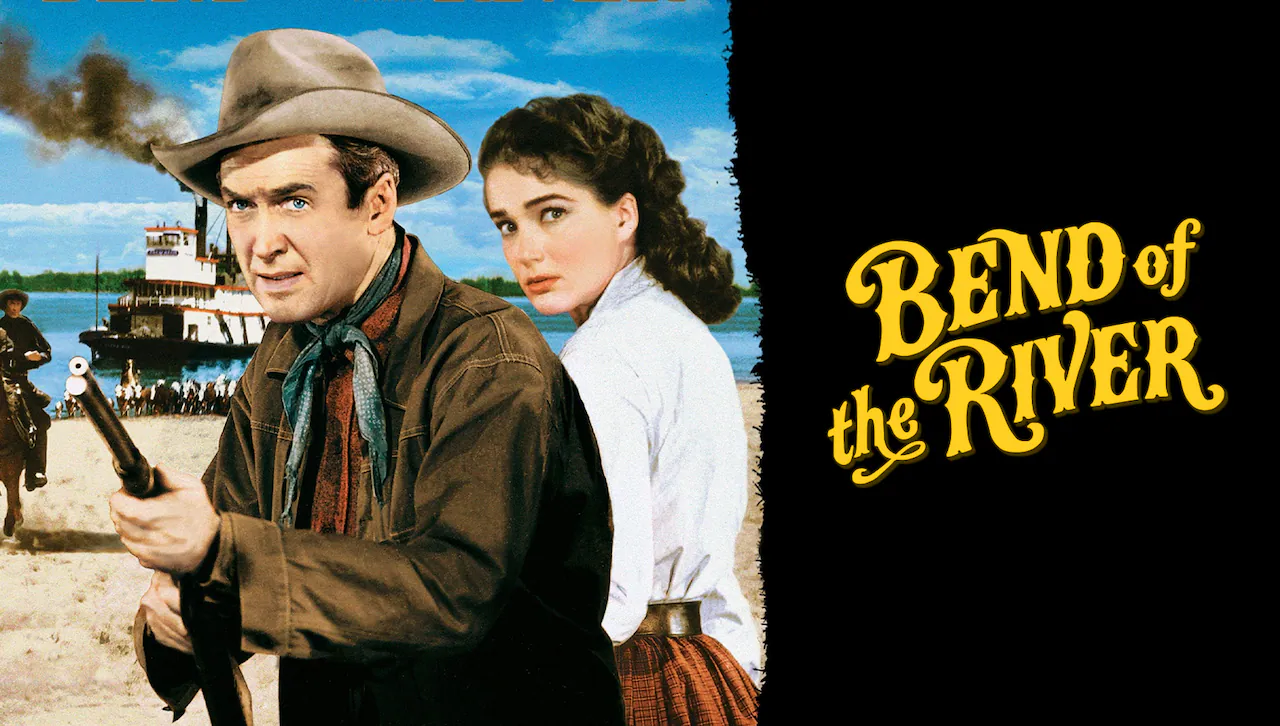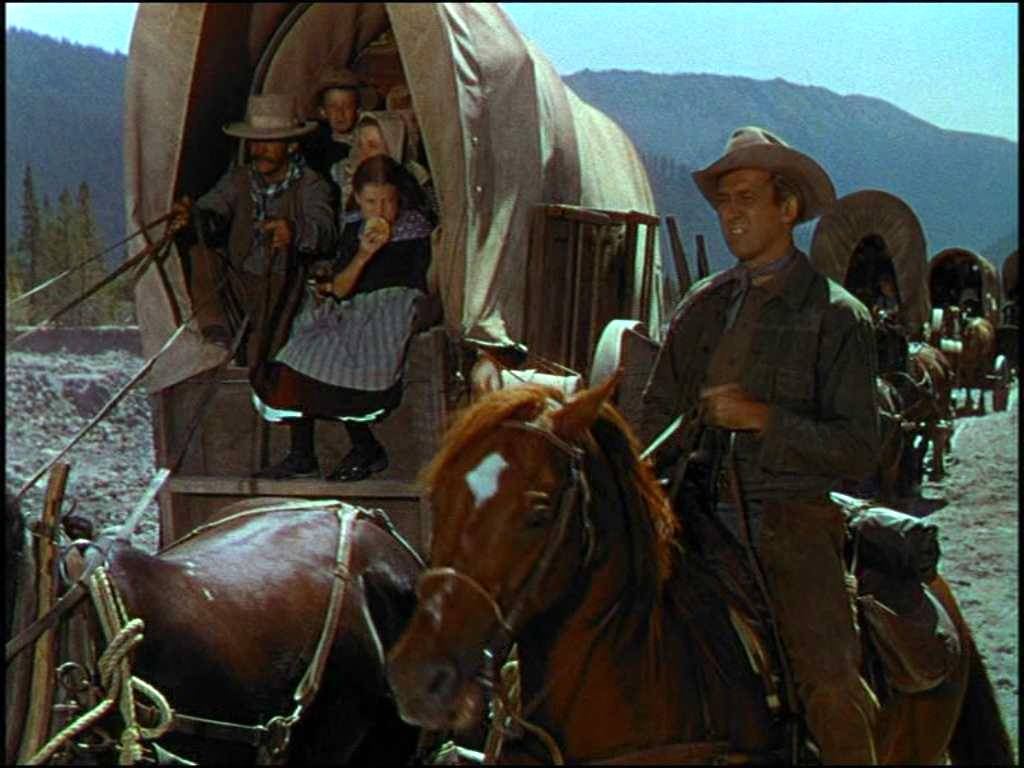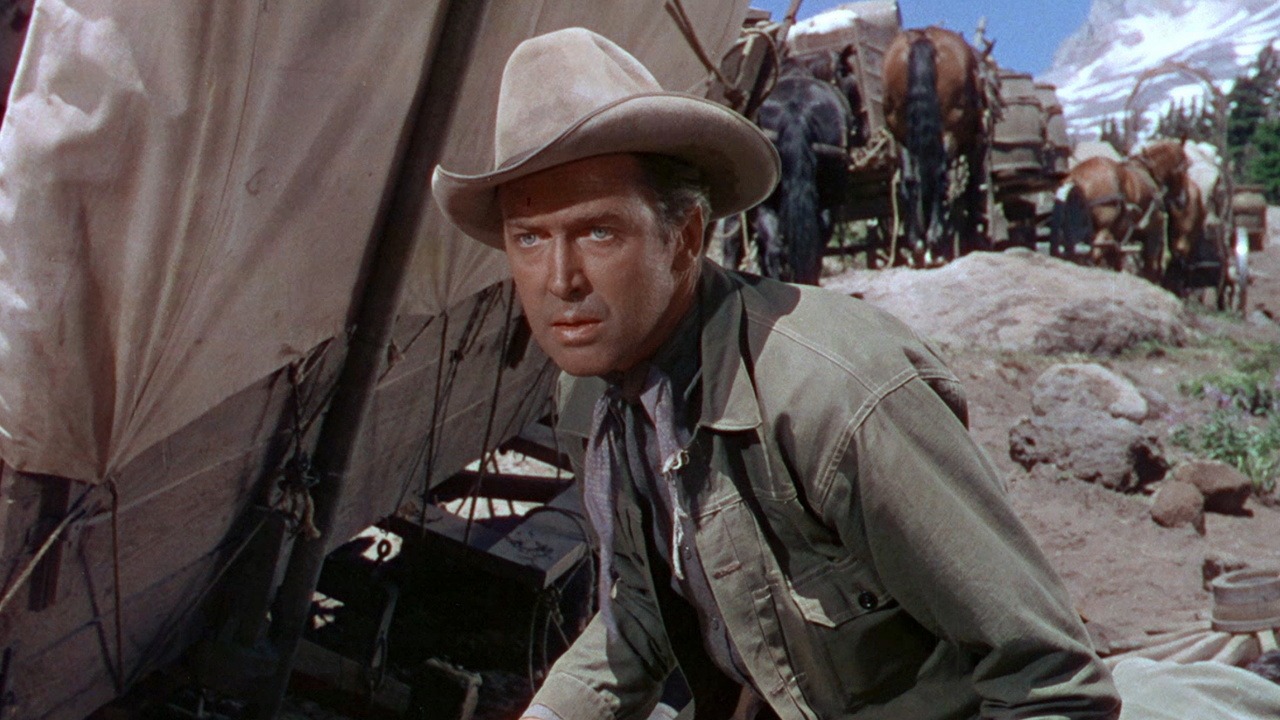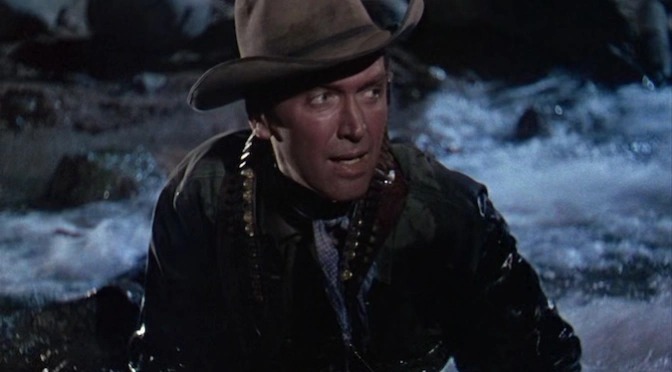Bend of the River (1952)

“Bend of the River” (1952) is a classic American Western film directed by Anthony Mann, starring James Stewart, Arthur Kennedy, Julie Adams, and Rock Hudson. Set in the rugged landscapes of the American frontier, the film explores themes of redemption, loyalty, and the moral dilemmas faced by individuals in a harsh and unforgiving environment. With its gripping storyline, strong performances, and stunning cinematography, the film stands as one of the great Westerns of the 1950s.
The story follows Glyn McLyntock (James Stewart), a former outlaw who has left his past behind and is trying to build a new life as a guide for a group of settlers heading to Oregon. Along the journey, McLyntock forms a bond with a fellow settler, Emerson Cole (Arthur Kennedy), who has his own secrets and motivations. The film centers around the settlers’ dangerous journey through the wilderness and the moral struggles of the characters as they face the challenges of the frontier, including harsh weather, scarce resources, and the looming threat of conflict with Native Americans.
As the settlers make their way westward, McLyntock’s past begins to resurface. Tensions rise when Cole, who has a personal stake in the journey, reveals his true intentions, putting McLyntock and the settlers in a difficult position. The moral choices McLyntock must make—whether to confront his past or protect those he cares about—are at the heart of the film. The struggle between redemption and betrayal is portrayed with depth and complexity, highlighting the difficult choices that people must make in order to survive and maintain their humanity.
At the core of “Bend of the River” is McLyntock’s relationship with the settlers, particularly the young woman, Marjie (Julie Adams), who becomes a source of emotional support and a symbol of hope for him. Their growing affection provides a contrast to the harsh realities of life on the frontier. McLyntock’s internal conflict between his desire to start anew and the pull of his past creates a compelling emotional arc, as he seeks to prove that a person can change, despite the past they may carry.

Rock Hudson’s character, Trey Wilson, adds another layer to the narrative. As a strong, determined figure, he represents the ideals of the frontier, where survival often requires strength, sacrifice, and decisiveness. His interactions with McLyntock and the other settlers further develop the theme of loyalty and trust, which is central to the film’s conflict. The film ultimately becomes a tale of testing one’s principles and the cost of remaining loyal in a world that often demands harsh choices.

Visually, “Bend of the River” is a stunning Western, capturing the vast, untamed landscapes of the American wilderness. The cinematography by William H. Daniels effectively uses the natural beauty of the setting to underscore the emotional weight of the characters’ struggles. The expansive shots of rivers, mountains, and forests serve as both a literal and metaphorical backdrop for the journey of the settlers and the inner conflicts they face. The film’s action sequences, including shootouts and dramatic confrontations, are well-executed and enhance the tension that builds throughout the story.

In conclusion, “Bend of the River” is a powerful Western that explores themes of redemption, loyalty, and the human capacity for change. Through strong performances from James Stewart, Arthur Kennedy, and the rest of the cast, the film delivers a compelling narrative set against the backdrop of the American frontier. With its richly developed characters and moral dilemmas, the film remains a standout in the Western genre, offering an unforgettable reflection on the struggles of the human spirit in the face of adversity.










